An overview of the cryptocurrency regulations in South Africa
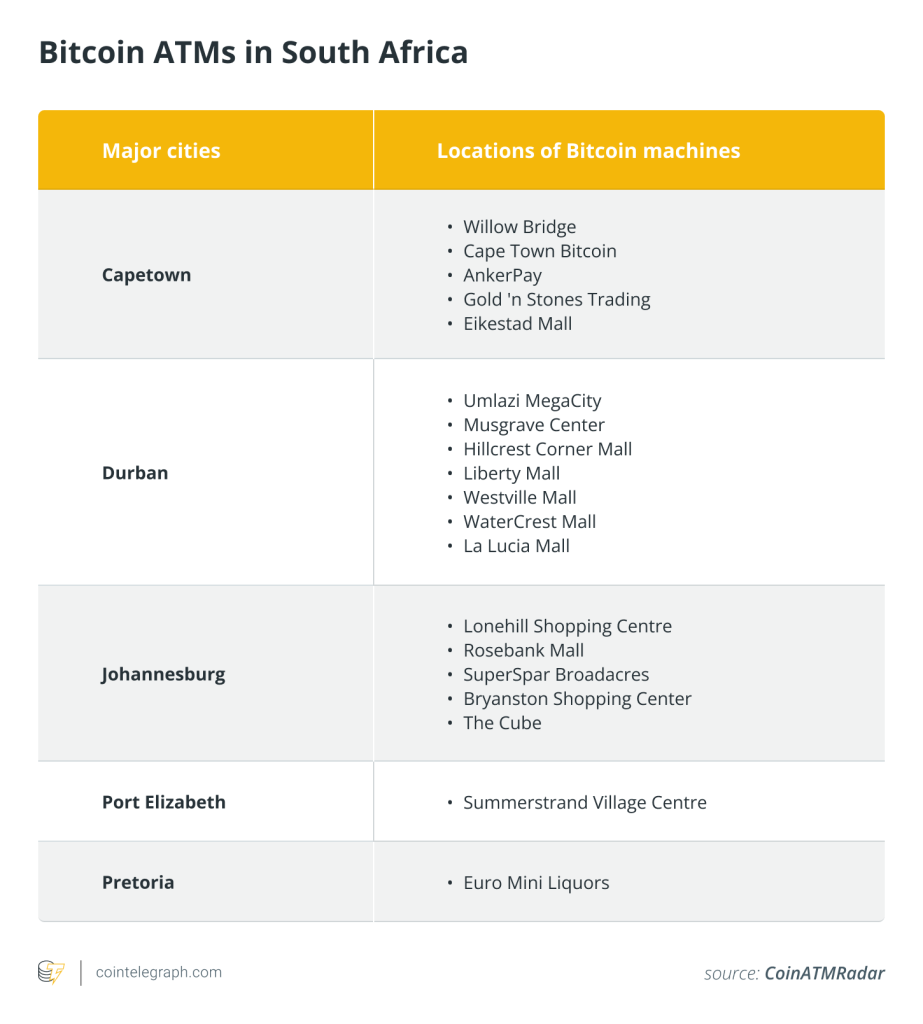

South Africa has shown a growing interest in cryptocurrencies over the years, with many people investing in the industry. The country has a supportive regulatory environment, and the South African Reserve Bank (SARB) has confirmed that it doesn’t plan on banning or restricting the use of cryptocurrencies.
Besides a favorable regulatory environment, crypto in South Africa also enjoys a vibrant community of blockchain developers and entrepreneurs, with several startups and companies operating in the space. In addition, the banking sector is exploring blockchain technology to improve its operations and provide smoother services to customers.
In 2021 and 2022, a combined effort between the SARB and the Financial Sector Conduct Authority (FSCA) — among other institutions — produced a consultation paper to offer a regulatory framework for the sector. The report proposed that cryptocurrency service providers — including exchanges, wallet providers and brokers — should be required to register with the Financial Intelligence Centre (FIC) and comply with Anti-Money Laundering (AML) and Counter-Terrorist Financing (CTF) requirements.
The collapse of FTX and other crypto businesses in 2022 pushed forward the need for better regulation to provide greater consumer protection in a highly volatile and decentralized system. The cryptocurrency ecosystem remains challenging for most governments that seek a balance between minimizing risk and maximizing innovation.
Is crypto allowed in South Africa
Cryptocurrency is legal in South Africa, where there is a relatively supportive regulatory environment for cryptocurrencies, and individuals and businesses can legally use cryptocurrencies.
There are also several cryptocurrency exchanges and trading platforms operating in the country that the FSCA regulates. However, it must be noted that cryptocurrencies are not recognized as legal tender in South Africa, and their use and acceptance as a form of payment have yet to be widespread. South Africans can invest in crypto; individuals and businesses can buy, sell and trade cryptocurrencies through various exchanges and platforms.
The local government has established a regulatory framework intended to protect investors and prevent fraudulent activities while allowing for innovation and growth in the cryptocurrency sector. Crypto investors must be aware of the potential risks involved, such as market volatility, cybersecurity threats and scams.
Is cryptocurrency regulated in South Africa
In October 2022, the FSCA established that crypto assets — referred to as “a digital representation of value” — are a financial product and subject to FSCA regulations under section 1(h) of the Financial Advisory and Intermediary Services Act (FAIS). Every cryptocurrency service provider must be authorized by the FAIS to operate its business in the sector and apply for such a license. Existing providers must apply before the end of 2023.
The urge for digital assets regulation arose in the aftermath of the release of the Paris-based intergovernmental organization Financial Action Task Force’s (FATF) report in 2021, which highlighted the lack of crypto assets regulation in South Africa, especially in consideration of AML and CTF laws.
However, the process of understanding and documenting crypto assets in South Africa started in 2014 when a joint initiative of the National Treasury, the SARB, the FSCA, the South African Revenue Service (SARS) and the FIC issued a public statement alerting the public to the risks of crypto assets.
Government officials say crypto laws in South Africa and a suitable regulatory framework were necessary to protect investors and ensure the sector's stability. Due to extreme volatility and cyber threats in the industry, individuals and businesses investing in cryptocurrencies are advised to stay informed about regulatory developments and exercise caution when dealing with cryptocurrency assets.
Crypto asset advertisements are now also regulated in South Africa. The South African Advertising Regulatory Board’s Code of Advertising Practice was amended to include new requirements for crypto assets in January 2023.
Such requirements demand that advertisements for crypto assets in South Africa clearly state that investing in crypto assets may result in capital loss. Advertisements must also be easily understandable for their audience and provide a clear message.
“Influencers” or “ambassadors” who are prominent professional figures in the cryptocurrency social media space must also comply with the regulations in the Social Media Code to avoid circulating misleading messages.
Is crypto taxable in South Africa
Cryptocurrency is subject to taxation in South Africa. The SARS considers cryptocurrency an intangible asset for tax purposes, and any gains from buying and selling cryptocurrencies are subject to tax.
Individuals who buy and sell cryptocurrency must declare crypto asset gains or losses as part of their taxable income and pay tax on any profits made. The tax rate depends on the individual's income tax bracket, with the maximum rate currently being 45%.
Taxable income
A taxable income between 1 South African rand (ZAR) and 216,200 ZAR ($11,112) will be taxed at 18%, with different rate brackets to reach 45% applied on taxable income above 1,656,601 ZAR ($85,151).
Capital gains
Crypto profits subject to capital gains tax are charged a maximum effective 18% tax rate, on gains above the 40,000 ZAR ($2,056) annual exclusion threshold, depending on a person’s total taxable income.
It is the responsibility of taxpayers to declare all crypto asset-related taxable income in the tax year in which it is received or accrued. They must keep detailed records of their transactions and comply with tax requirements, as failure to do so may result in penalties and fines.
SARS has a wide range of collection powers in the context of the Income Tax Act, including a requirement for crypto service providers to submit financial data if authorities demand it.
Users with an account with a South African cryptocurrency exchange might have SARS access their data, and even if they have an account with a foreign exchange, they should be aware that SARS could access that data too.
Like in most other jurisdictions worldwide, not all cryptocurrency transactions in South Africa are taxed. Only when investors earn additional income or dispose of crypto does SARS tax them. Therefore, some crypto transactions are tax-free, and those include the following:
- Buying crypto with ZAR or another fiat currency
- Holding crypto
- Transferring crypto between wallets belonging to the same owner.
In addition, cryptocurrency mining activities are subject to taxation in South Africa. The income generated from mining cryptocurrency is taxable and should be declared in the individual's tax return.
Where can investors buy cryptocurrency in South Africa
Several cryptocurrency exchanges and trading platforms in the country allow individuals to buy, sell and trade cryptocurrencies such as Bitcoin (BTC), Ethereum (ETH) and Litecoin (LTC).
Some South Africa-based cryptocurrency exchanges include Valr, Altcoin Trader and iCE3X, which allow users to buy and sell cryptocurrencies using ZAR and other cryptocurrencies.
To buy cryptocurrency in South Africa, investors typically need to create an account with a cryptocurrency exchange, complete the required identity verification and compliance checks, and fund their accounts using ZAR or another accepted currency. Once the account is funded, users can buy the cryptocurrency they choose at the current market price.
How to buy Bitcoin in South Africa
Bitcoin is the most popular cryptocurrency in South Africa. There are several ways to buy BTC in South Africa.
Cryptocurrency exchanges
The most common way to buy Bitcoin in South Africa is through a cryptocurrency exchange such as Luno or South African providers like Valr, Altcoin Trader and iCE3X. To buy Bitcoin on these exchanges, users must sign up for an account, complete the required identity verification and compliance checks, fund their account with ZAR and then place an order to buy Bitcoin at the current market price.
Peer-to-peer (P2P) marketplaces
Another option is to buy Bitcoin through a peer-to-peer marketplace such as Paxful or Hodl Hodl. These marketplaces allow users to buy Bitcoin from other individuals who are looking to sell. Users can pay for the Bitcoin using ZAR or another accepted payment method agreed upon between the user and the seller.
Bitcoin ATMs
An increasing number of Bitcoin ATMs in South Africa allow users to buy Bitcoin using cash. Bitcoin ATMs can be found using websites such as CoinATMRadar.

Bitcoin brokers
Users can also buy Bitcoin through a broker such as Coindirect or Ovex. Brokers act as intermediaries between users and the cryptocurrency exchange and can help them buy Bitcoin at the current market price.
It is important to note that buying Bitcoin can be risky, and individuals should do their research and exercise caution before investing. Additionally, it is essential that they keep their Bitcoin safe by using a secure wallet and following best practices for cryptocurrency security.
Cryptocurrency exchange regulations
Cryptocurrency exchange regulations in South Africa are governed by the country's financial regulatory body, the FSCA, which oversees the activities of South African crypto platforms.
In 2019, the FSCA released a draft declaration on regulating crypto assets, which sought to establish a regulatory framework for crypto assets in South Africa. The declaration drafted several key proposals, including the following:
- Cryptocurrency exchanges must register with the FSCA and comply with specific regulatory requirements, including AML and Know-Your-Customer (KYC) requirements.
- The FSCA would be responsible for overseeing and enforcing compliance with these regulations.
- Cryptocurrency exchanges would be required to maintain a certain level of capitalization and financial resources to ensure they can meet their financial obligations to their customers.
- The FSCA would also have the power to impose penalties or sanctions on cryptocurrency exchanges that fail to comply with these regulations.
In 2020, the FSCA finalized its policy position on cryptocurrency assets and issued a revised declaration that largely retained the key proposals outlined in the earlier draft. It also introduced additional provisions to address specific areas of concern, such as consumer protection and risk management.
On Dec. 19, 2022, an amendment to the Financial Intelligence Centre Act (FICA) defined crypto service providers as “accountable institutions.” It made dealing with crypto assets anonymously in South Africa legally impossible. The amendment was included in the FICA in an attempt to combat money laundering and terrorist financing.
The FATF has recognized that crypto asset payment products and services could hold money laundering and terrorist-financing risks, making it necessary to address the anonymity in using crypto assets more than in traditional non-cash payment methods.
The future of cryptocurrency in South Africa
While South Africa’s adoption of digital currencies has been steadily increasing in recent years, several factors may still impact the future of cryptocurrencies in the country, including regulatory developments, economic conditions and public sentiment. The setup of a regulatory framework is ongoing and moves along with innovation and the rise of new crypto assets like nonfungible tokens.
The economic conditions in South Africa are another critical factor that may affect the development and adoption of cryptocurrencies. The country has faced many challenges in recent years, including high unemployment and inflation, which have led many South Africans to explore alternative forms of investment and financial transactions. Cryptocurrencies offer a potential solution to some of these challenges with their decentralized and borderless nature.
Public sentiment will also play a role in the future of cryptocurrencies in South Africa. As with everywhere else, some South Africans are enthusiastic about digital currencies' potential benefits and innovations. Others remain skeptical or cautious, mainly due to the volatility and uncertainty of the cryptocurrency market in recent years.
Despite these challenges, there are many reasons to be optimistic about the future of cryptocurrencies in South Africa. The country has a young, tech-savvy population and a growing interest in blockchain technology and its potential applications. Additionally, several innovative fintech startups and crypto companies are operating in South Africa and are helping to drive adoption and innovation in the industry.
Written by Emi Lacapra

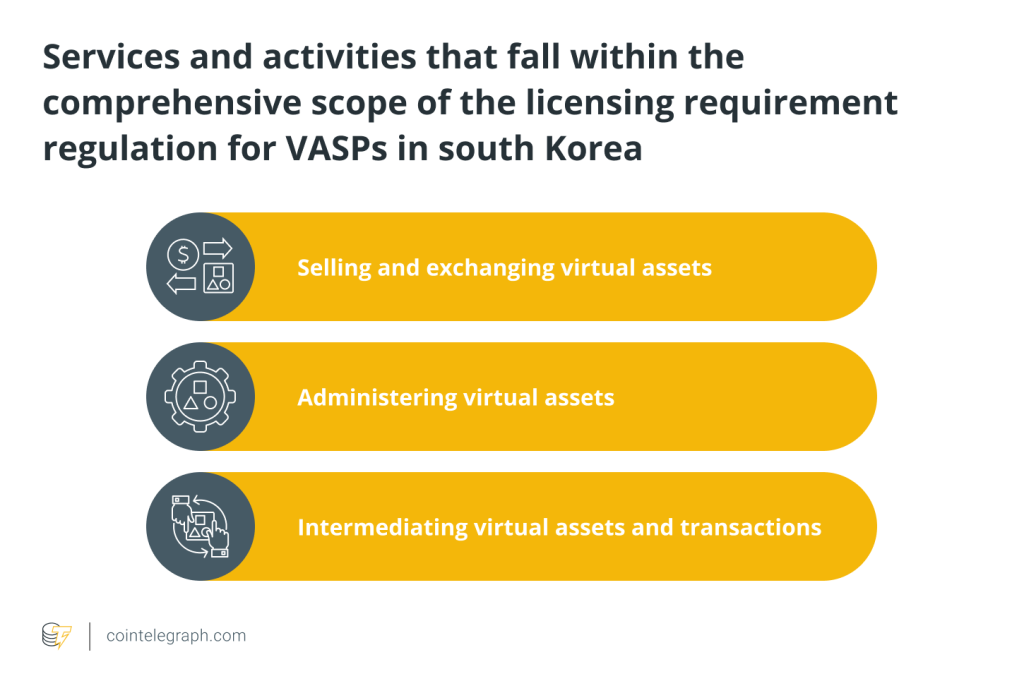
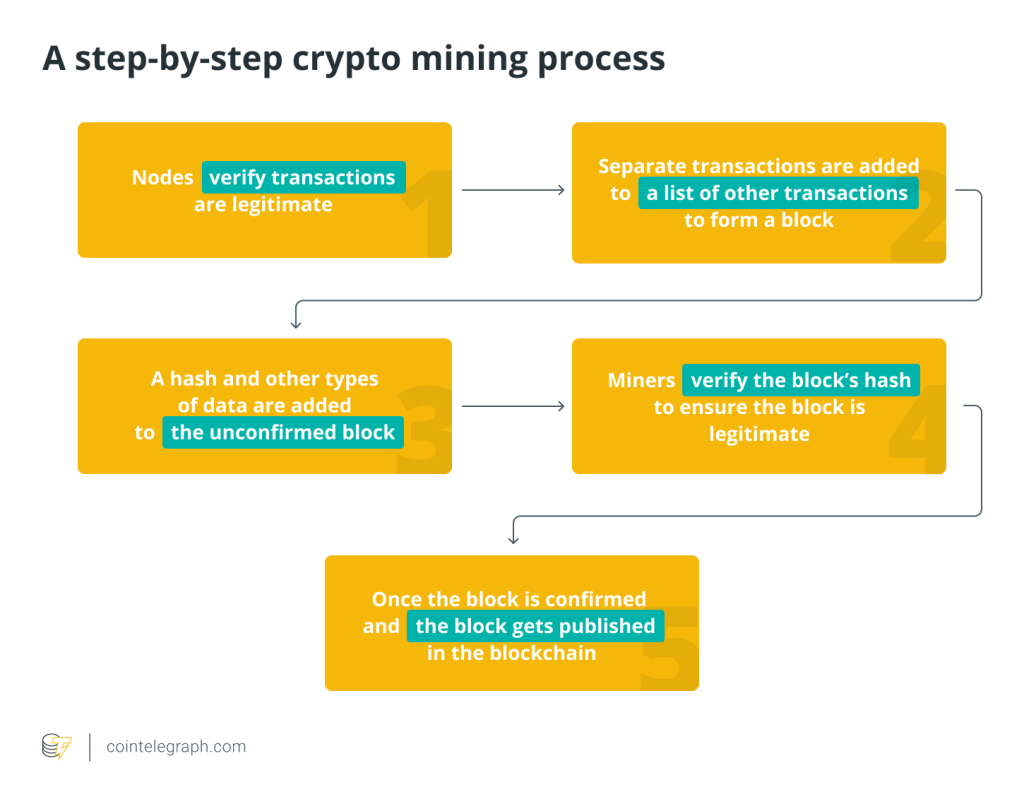
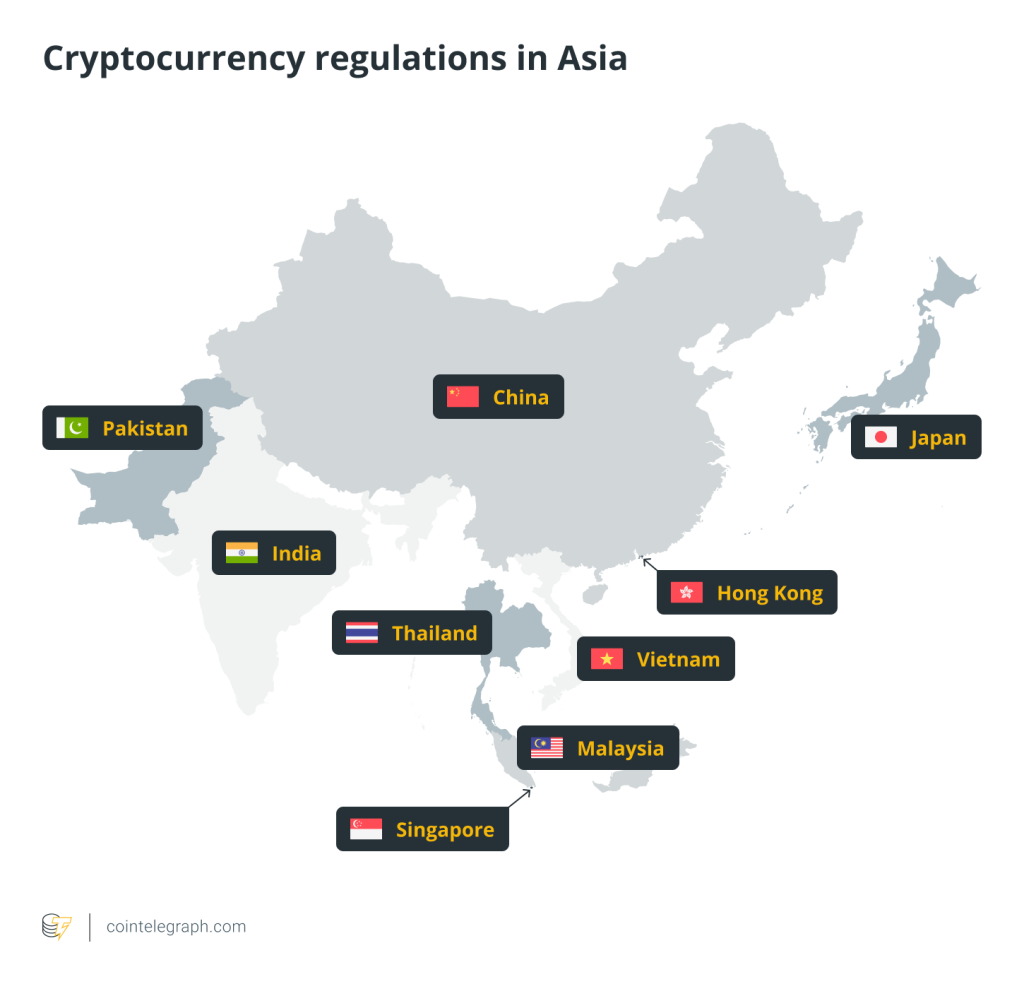

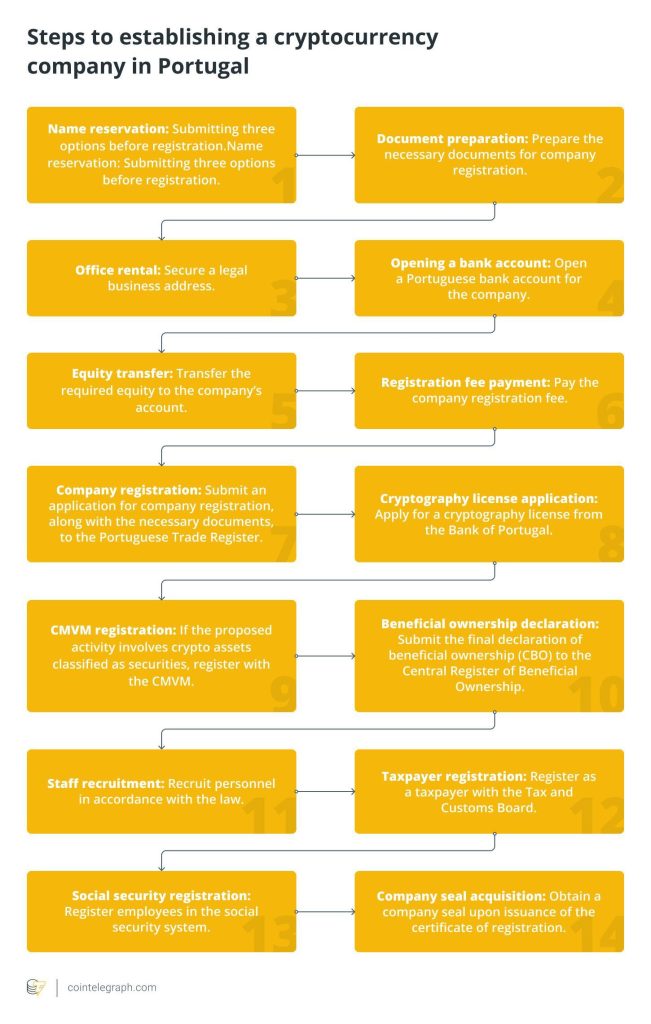
… [Trackback]
[…] Read More on to that Topic: x.superex.com/academys/beginner/2359/ […]
… [Trackback]
[…] Information on that Topic: x.superex.com/academys/beginner/2359/ […]
… [Trackback]
[…] Here you can find 22699 additional Info on that Topic: x.superex.com/academys/beginner/2359/ […]
… [Trackback]
[…] Information on that Topic: x.superex.com/academys/beginner/2359/ […]
… [Trackback]
[…] Find More Information here to that Topic: x.superex.com/academys/beginner/2359/ […]
… [Trackback]
[…] Info to that Topic: x.superex.com/academys/beginner/2359/ […]
… [Trackback]
[…] There you can find 90920 additional Information to that Topic: x.superex.com/academys/beginner/2359/ […]
… [Trackback]
[…] Find More Info here on that Topic: x.superex.com/academys/beginner/2359/ […]
… [Trackback]
[…] There you will find 80770 more Information to that Topic: x.superex.com/academys/beginner/2359/ […]
… [Trackback]
[…] Read More here on that Topic: x.superex.com/academys/beginner/2359/ […]
… [Trackback]
[…] Read More Info here to that Topic: x.superex.com/academys/beginner/2359/ […]
… [Trackback]
[…] Here you can find 81901 more Info on that Topic: x.superex.com/academys/beginner/2359/ […]
… [Trackback]
[…] Information to that Topic: x.superex.com/academys/beginner/2359/ […]
… [Trackback]
[…] Find More Information here on that Topic: x.superex.com/academys/beginner/2359/ […]
… [Trackback]
[…] Read More on to that Topic: x.superex.com/academys/beginner/2359/ […]
… [Trackback]
[…] Here you can find 91161 more Info on that Topic: x.superex.com/academys/beginner/2359/ […]
… [Trackback]
[…] Here you can find 11635 additional Information to that Topic: x.superex.com/academys/beginner/2359/ […]
… [Trackback]
[…] There you can find 85976 more Information on that Topic: x.superex.com/academys/beginner/2359/ […]
… [Trackback]
[…] Find More on that Topic: x.superex.com/academys/beginner/2359/ […]
… [Trackback]
[…] Info to that Topic: x.superex.com/academys/beginner/2359/ […]
… [Trackback]
[…] Read More on on that Topic: x.superex.com/academys/beginner/2359/ […]
… [Trackback]
[…] There you will find 16491 more Information on that Topic: x.superex.com/academys/beginner/2359/ […]